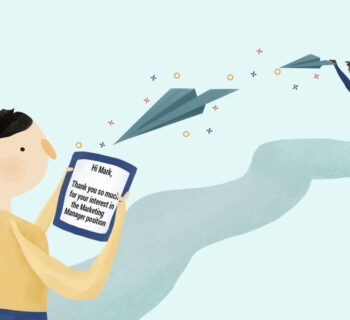So, many people are there who have not paid the money for the goods and services which they have availed. There are high cases and numbers of such people in Germany. The debt collection claim not only has a negative impact on liquidity. One or more debt collection procedures can even lead to the bankruptcy of the creditor. For this reason, it is important to properly manage and realize your unpaid claims. However, this requires at least two resources: Expertise & Time and manpower. External debt collection management can be an adequate solution to solve the problem without spending many resources.
Receivable Management
Receivables management collection includes all tasks and measures that are intended to protect a creditor from the failure of a payment. Accounts receivable management can optionally be carried out by in-house clerks, but also to appropriate service providers such as claims management GmbH or a lawyer claims management. The tasks can also be outsourced to suitable companies such as Creditreform, infoscore, GFKL, Tesch, Kohl, or others. The measures in receivables management are also necessary preventively. The functions or goals of receivables management are simple by definition: They should keep receivables defaults as low as possible.
Checking Creditworthiness
Efficient claims management starts before a claim arises. These preventive measures include, for example, checking the creditworthiness of the customer or the business partner before concluding the contract. The effort is usually only worthwhile for orders with a high value or risk of failure. If, however, a loan is granted, the question of creditworthiness is indispensable. A suitable means is bad debt insurance, which is particularly worthwhile for large-volume receivables. Another preventive measure is the drafting of contracts. In particular, the contract should define precise payment terms. In addition to the contract, the general terms and conditions are also adequate provisions,
Debt Collection Services –
It is common practice to have thirty to ninety days to transfer the amount due in Forderungsmanagement. You should only grant this generous margin to wealthy customers. This in turn requires that the creditworthiness of your customers is regularly monitored. You can do this yourself or you can outsource it to a debt collection service such as Creditreform, Infoscore. As a debtor manager, you are also responsible for condition management. In addition to the payment terms, you also create the incentives which rewards a quick settlement of outstanding debts. In any case, this includes the discount deduction for quick cash payments.
Collecting the Claims –
The accounts receivable department is responsible for monitoring the outstanding receivables. Monitoring is very simple. The receivables are posted to the so-called debtor accounts with the payment term. If the payment term has expired, the receipt of the payment will be checked. Refunds such as cancellations and reversals must be taken into account. If there is no incoming payment, the customer has not paid, dunning and debt collection follow in order to be able to collect the claim. First of all, contact is established with the debtor. Such a call or email can be used as a payment reminder describe.
Reminders to the Debtor –
If the debtor does not respond, the first to third reminders usually follow. Only one reminder is required by law for dunning. Some companies issue warnings themselves, while others use a lawyer to do this through receivables management. After an unsuccessful claim reminder, the lawyer can instruct the bailiff to collect or enforce the claim. The GmbH can also carry out these tasks itself or delegate them to a receivables management GmbH. Effective accounts receivable accounting therefore provides effective protection against bad debts.
Conclusion –
Binding responsibilities and tasks create the basis for effective receivables management. Everyone in society should know by means of a declaration what to do with open claims and by whom. This is the only way to deal with it in a planned manner. In this context, it is worthwhile to install a careful reporting system in the GmbH. Furthermore, you should make a rule for yourself never to provide services without a written or reputable order or contract. Those who can check the creditworthiness of their customers before the service can avoid unnecessary risks. Even if the acquisition of new customers and the retention of existing customers are of great importance, on the other hand there is a risk if you don’t do the work of checking the key figures. If possible, you should have your customers’ solvency assessed and checked once a year. You can use your own data or external information such as Infoscore. For the purpose of accounts receivable management companies uses their own clerks or delegates.








